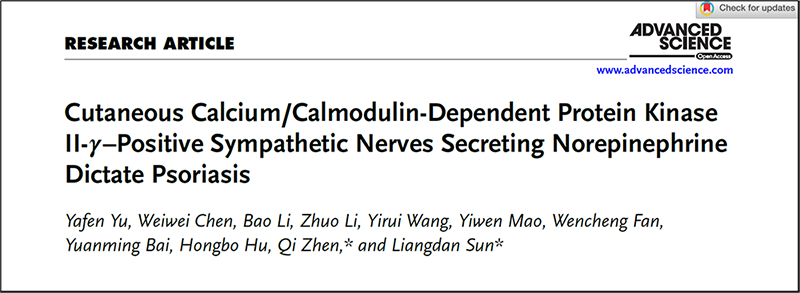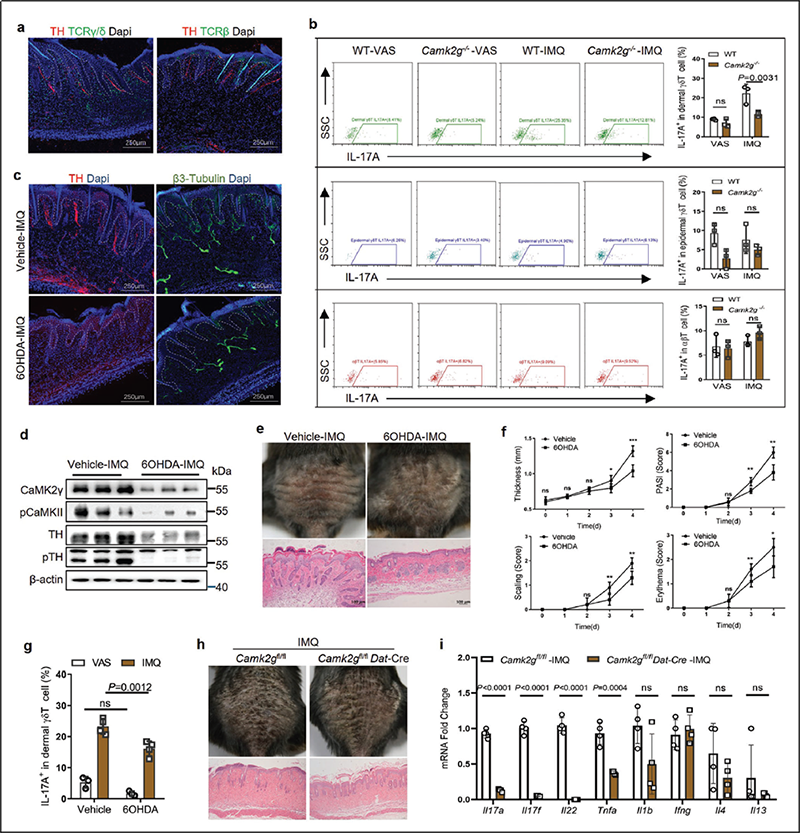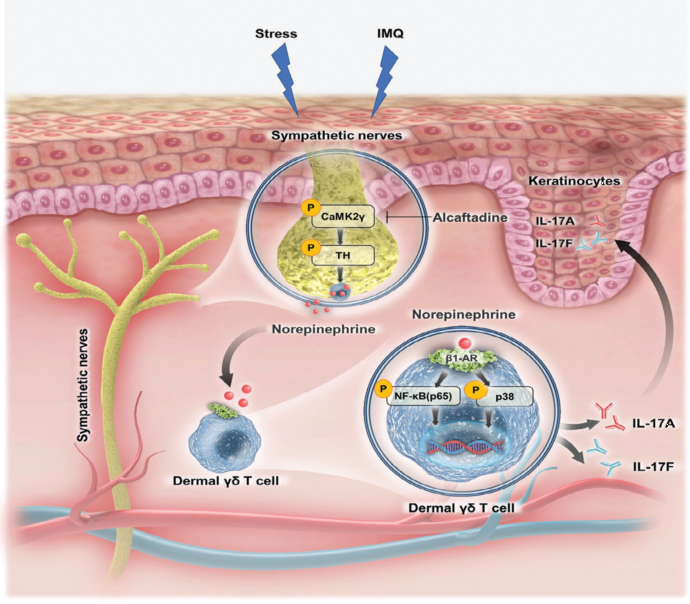Activity lecture location:Home≡Activity lecture≡Details
Professor Sun Liangdan’s team discovered the mechanism by which mental and neurological factors induce and aggravate psoriasis
Source:Chinese Psoriasis Congress Date:2024/03/29 Browse:126 second
Psoriasis is a major chronic autoimmune disease that can affect multiple systems and organs. It is easy to relapse and difficult to cure, seriously endangering the physical and mental health of patients. The disease has obvious genetic susceptibility and can be induced and aggravated by mental stress. Psychiatric/nervous factors play an important role in skin immune diseases, and sympathetic nerves play an indispensable role in skin immune responses mediated by neurological/psychiatric factors. The calcium/calmodulin-dependent protein kinase II-γ (CAMK2γ) encoded by the psoriasis susceptibility gene CAMK2G is a key regulatory protein in nerve cell development and sympathetic nerve response to external stress, but its mechanism of action in psoriasis still not clear.
On March 28, Professor Sun Liangdan’s team published a paper titled “Cutaneous calcium/calmodulin-dependent protein kinase II-γ–positive sympathetic nerves secreting norepinephrine” in the internationally renowned academic journal Advanced Science The research results of "dictate psoriasis (cutaneous CAMK2γ+ sympathetic nerve secretion of norepinephrine regulates the onset of psoriasis)" (Figure 1).

Figure 1. Article title page
This study analyzes the mechanism of skin CaMK2γ+ sympathetic nerves in the pathogenesis of psoriasis. Studies have found that skin CAMK2γ is mainly expressed in sympathetic nerves and can be activated by stress factors and imiquimod (IMQ) in mouse skin. Compared with IMQ-induced wild-type mice, IMQ-induced Camk2g-deficient mice significantly alleviated psoriasis phenotype and skin inflammation, and secreted IL-17 from dermal γδ T cells. CaMK2γ regulates dermal γδ T cells to secrete IL-17, a process that relies on cutaneous sympathetic nerve activation and norepinephrine production. Overactivated CaMK2γ in cutaneous sympathetic nerves promotes norepinephrine (NE) secretion by upregulating tyrosine hydroxylase (TH). NE in the skin acts on γδT cells and promotes IL through the ARβ1–NF-κB–p38 axis. The production of -17. In addition, this study screened out alcatadine, a highly efficient small fraction inhibitor targeting CaMK2γ, which can significantly alleviate IMQ-induced psoriasis-like phenotypes in mice (Figures 2 and 3).

Figure 2. CaMK2γ activates cutaneous sympathetic nerves and promotes dermal γδ T cells to produce IL-17

Figure 3. Schematic diagram of the mechanism of CAMK2γ+ sympathetic nerves in the skin regulating the pathogenesis of psoriasis
Professor Sun Liangdan’s team has long been committed to genetic immunity research and translational medicine research on inflammatory immune skin diseases. This result explains the mechanism by which cutaneous sympathetic nerves regulate skin immune responses, provides insights into how neurological/mental factors induce and aggravate psoriasis, provides basic reference for target screening and new drug development for psoriasis, and provides a basis for the foundation of psoriasis. Research and translational research provide new strategies.
Professor Sun Liangdan and Dr. Zhen Qi are the co-corresponding authors of the paper. Yu Yafen, Chen Weiwei, and Li Bao are the co-first authors.
China Psoriasis Network CPC2020

Copyright: China Psoriasis Network Wanicp Bei 11019793 皖公网安备 34019202000792号